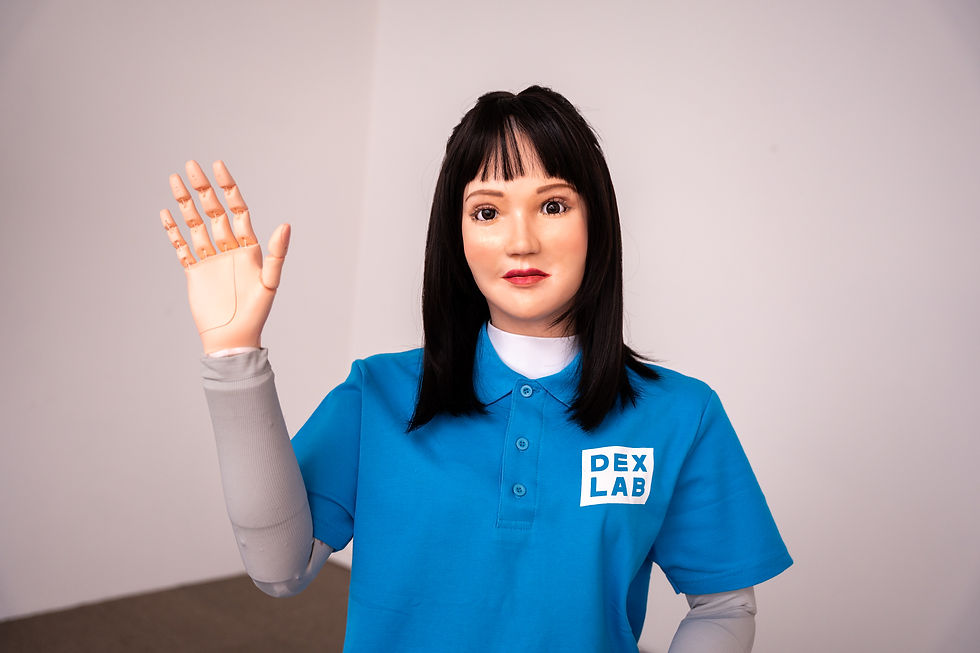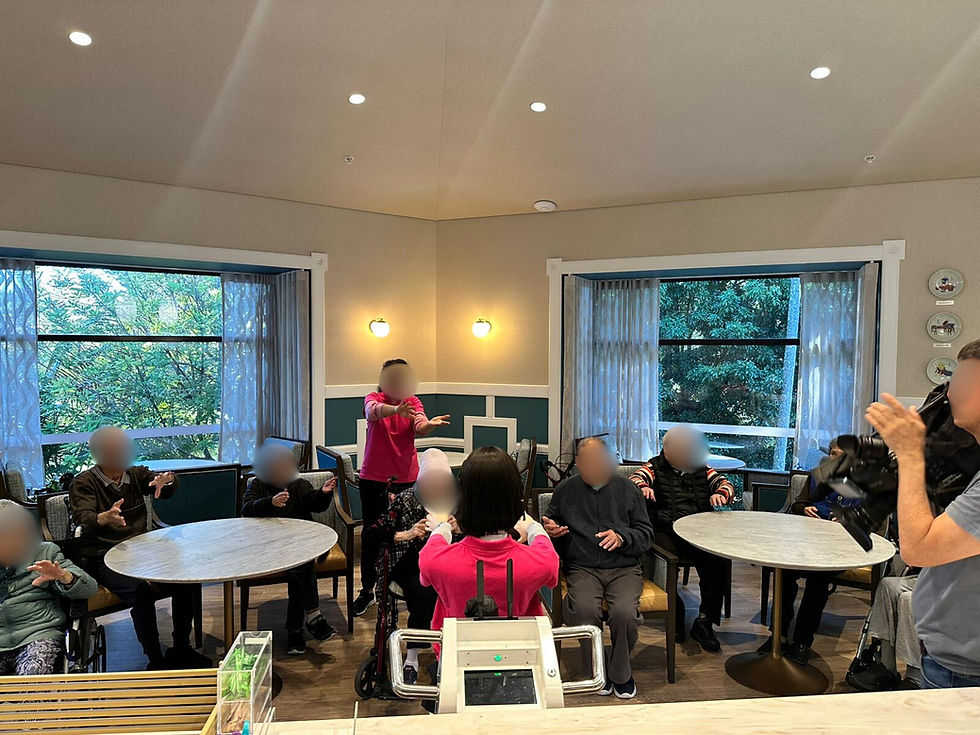Humanoid in Nursing Homes to Improve Care Quality and Productivity
- Dex-Lab
- Nov 20, 2024
- 2 min read
Nursing homes face complex and rapidly growing demands for holistic care and workforce constraints. Residents’ psychosocial and emotional needs often take a backseat due to the focus on clinical and care needs.
Bright Hill Evergreen Home (BHEH), a 436-bedded non-profit nursing home, faces the same challenge of lacking trained staff to engage effectively and in meaningful interactions with residents exacerbated by COVID-19 restrictions. At the peak of these challenges, the activity programme and engagement level were nearly nil due to other clinical care priorities, staff shortage and isolation restrictions.
BHEH strategically partnered with multidisciplined experts from IMI NTU and Goshen Consultancy Services to adopt the use of an Eldercare Humanoid to improve resident engagement and increase workforce savings with its Humanoid Therapeutic Programme. It eventually decided to adopt a humanoid robot due to the following reasons:
• It is a consistent "manpower" as it is immune to contracting Covid-19.
• It addresses the consistency of delivering activity programmes and interacting with the residents without the constant presence of a human worker.
• Research findings indicate that social robots have the potential to improve the well-being of seniors, and a humanoid that has a human-like presence may provide a longer-lasting impact on residents.
• Using a humanoid paves the way to future-proof the care industry. It can be further programmed to enhance its capabilities to perform other engagement functionalities. It can be scaled to be implemented at other wards, nursing homes, day centres, and community care settings.
BHEH has deployed the humanoid programme since August 2022 in 2 wards after the implementation phase. The scale-up effort is targeted to implement across the remaining seven wards by March 2024.



Comments